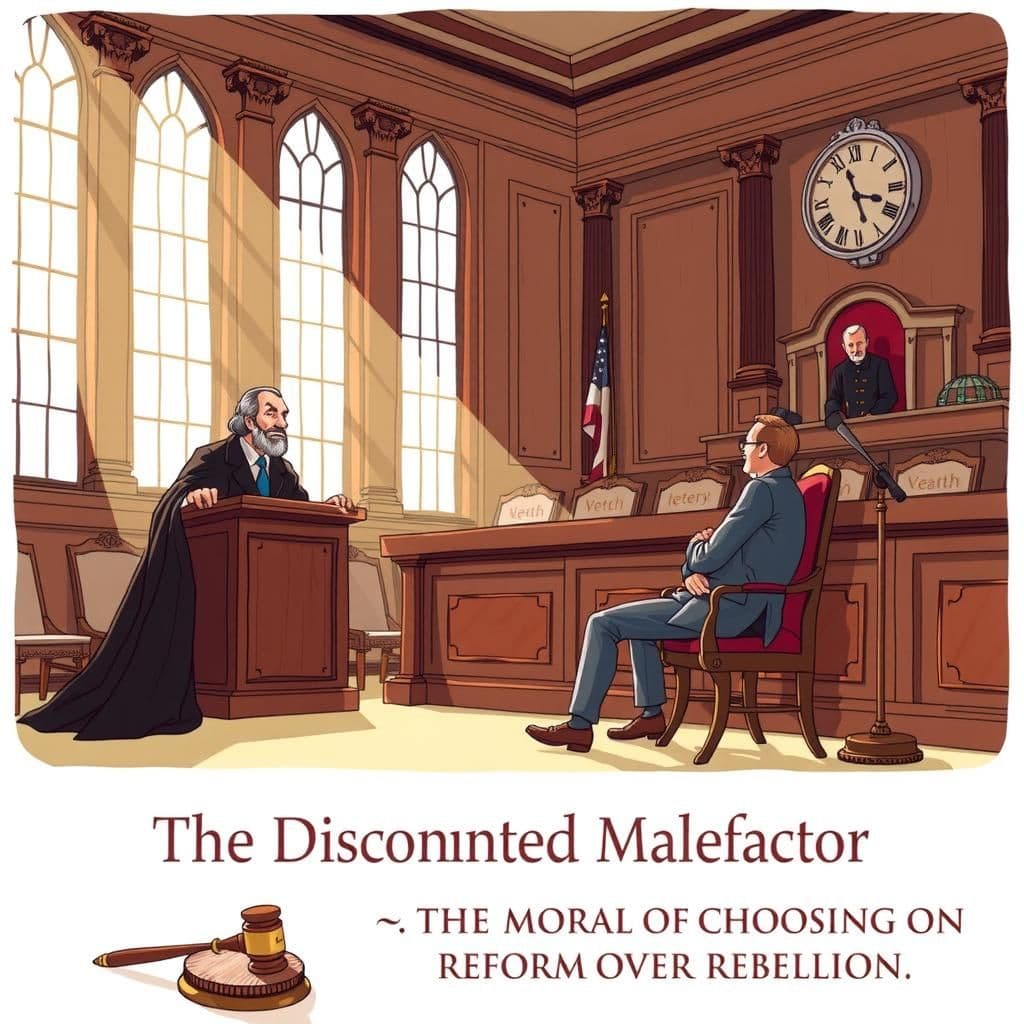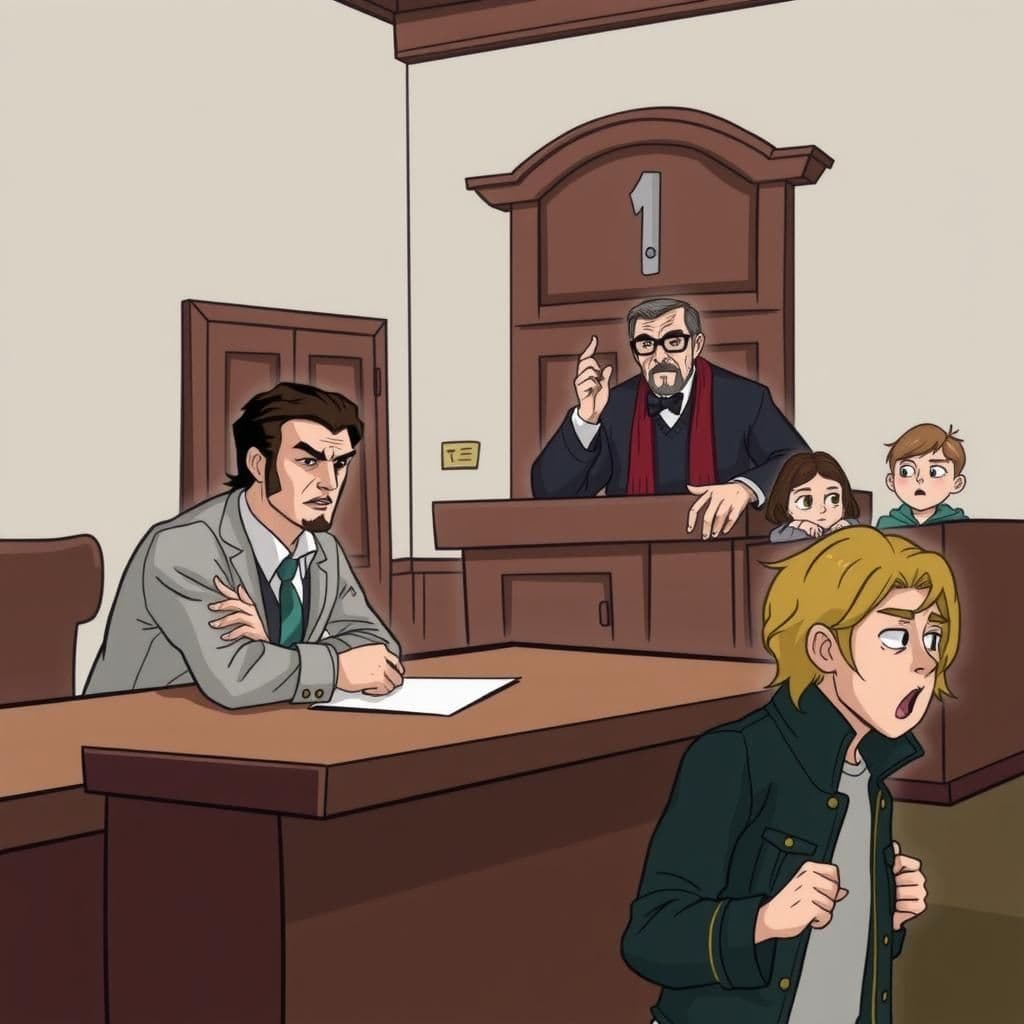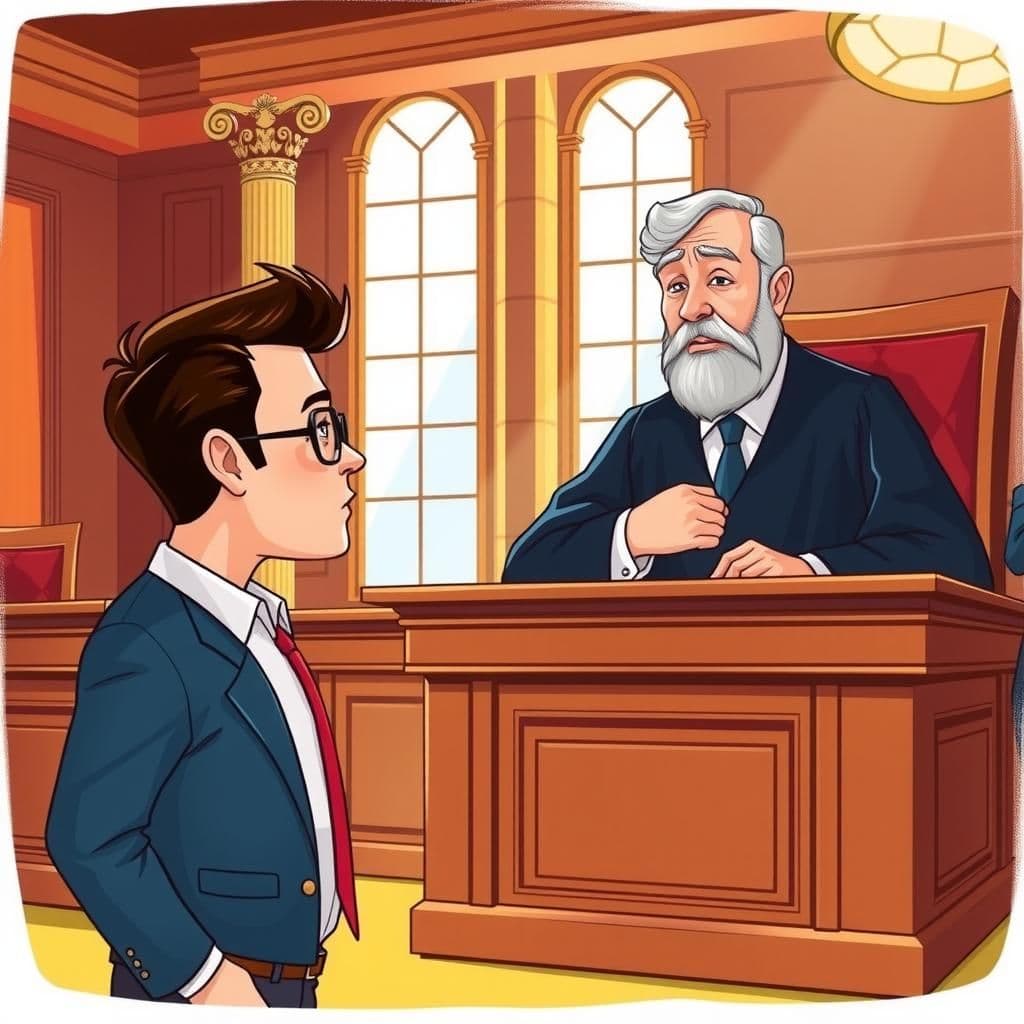The Discontented Malefactor
In the unique moral story "The Discontented Malefactor," a judge sentences a criminal to three years in prison and attempts to impart a lesson on the drawbacks of crime and the benefits of reform. The malefactor, uninterested in reformation, humorously requests to extend his sentence to ten years in exchange for skipping the moral lecture, showcasing a clever twist in this concise moral story. This short story with moral lessons highlights the complexities of human nature and the resistance to change, making it a thought-provoking bedtime moral story.

Reveal Moral
"The story illustrates that some individuals may prefer punishment over the moral lessons that come with it, highlighting a resistance to personal reform and the value of accountability."
You May Also Like

The Tried Assassin
In "The Tried Assassin," a courtroom drama unfolds as an assassin stands trial in a New England court. His counsel argues for dismissal based on a previous acquittal in California, invoking the principle of "once in jeopardy." However, the judge denies the motion, stating that an assassin is not considered to be in jeopardy when tried in California, allowing the trial to proceed—a reflection of the complexities found in popular moral stories and animal stories with moral lessons.

The Man with No Enemies
In "The Man with No Enemies," an inoffensive person is brutally assaulted by a stranger, leading to a trial where he claims to have no enemies. The defendant argues that this lack of enemies was the very reason for the attack, prompting the judge to dismiss the case with a humorous yet moral lesson: a person without enemies cannot truly have friends, and thus should not seek justice in court. This short story serves as a thought-provoking moral lesson for students about the complexities of relationships and the nature of conflict.

The Judge and the Plaintiff
In this captivating moral story, a businessman awaits a court ruling against a railway company and, in a moment of levity, offers to split the potential damages with the judge. However, the judge, realizing his mistake, reveals that he has already ruled in the plaintiff's favor, prompting the businessman to retract his offer and express gratitude instead. This simple moral story highlights the importance of integrity and honesty in the face of temptation.